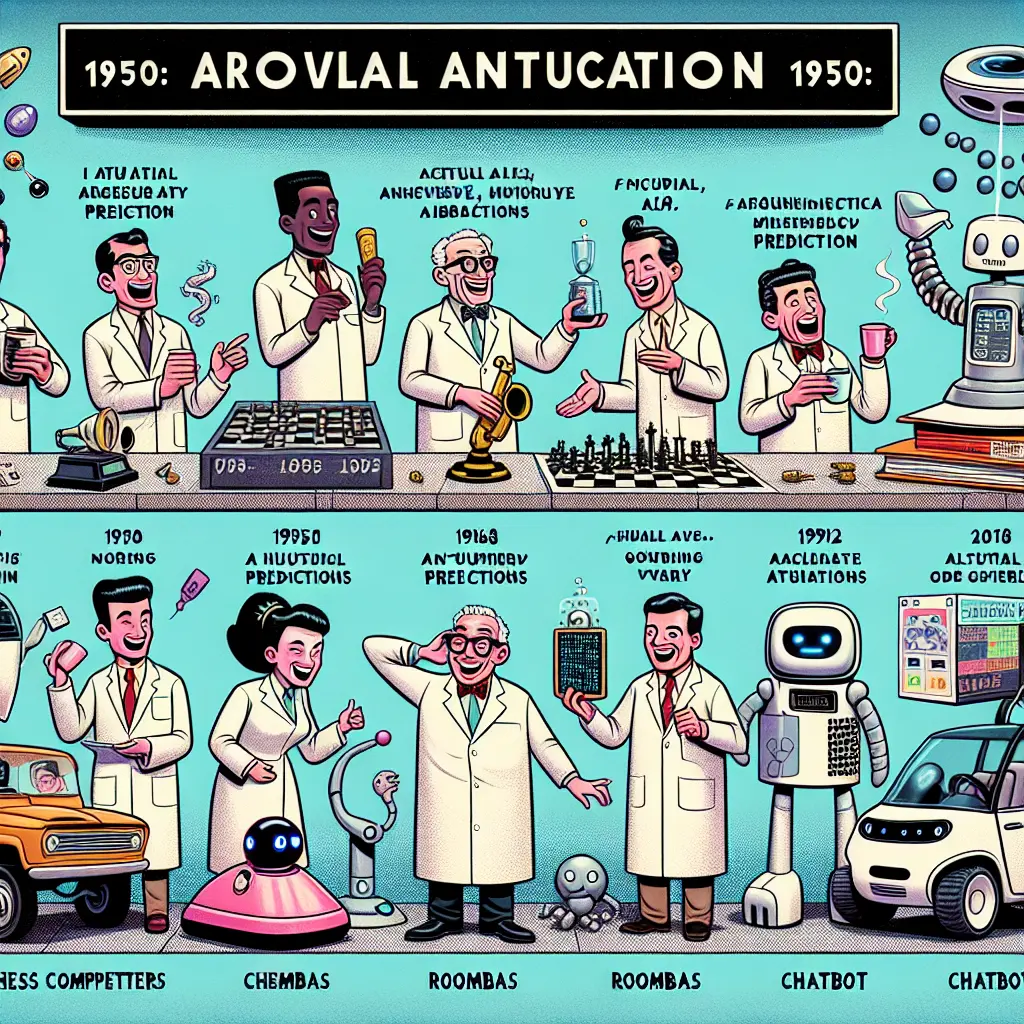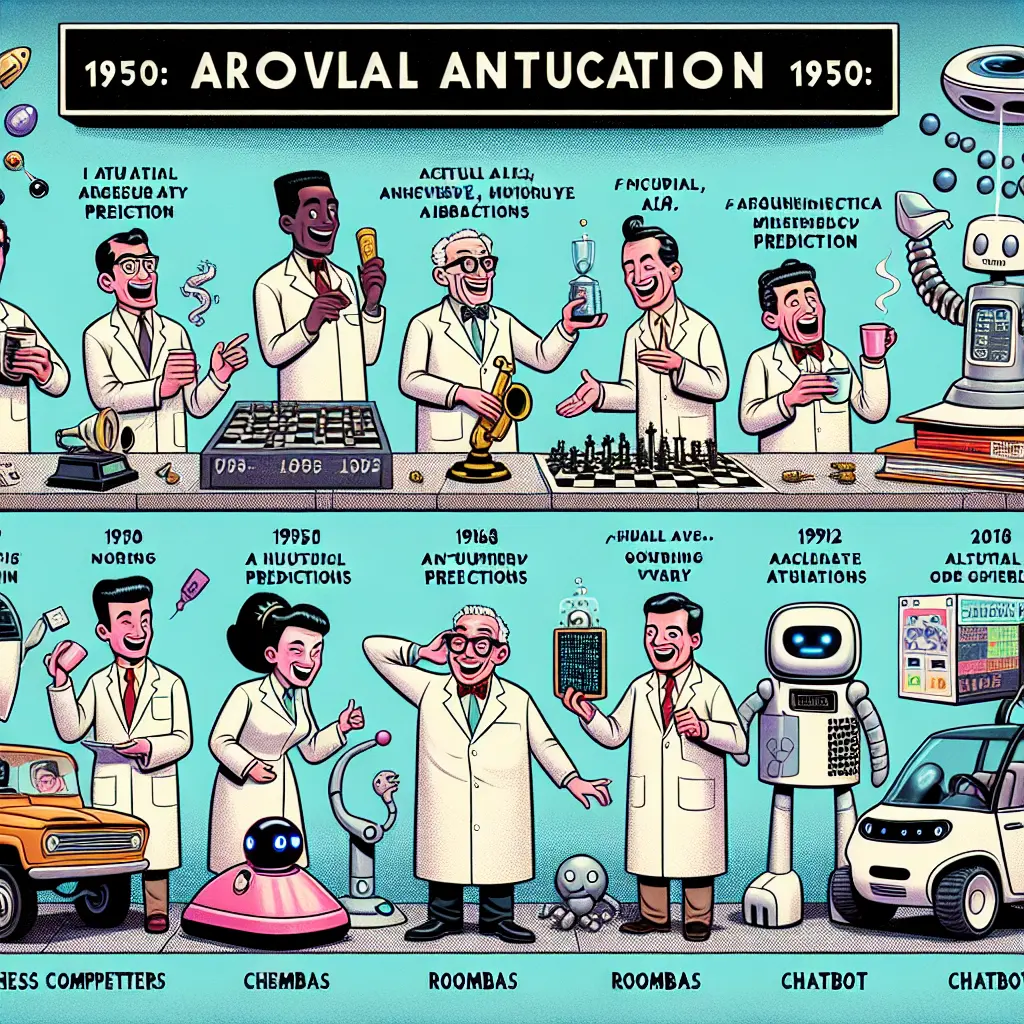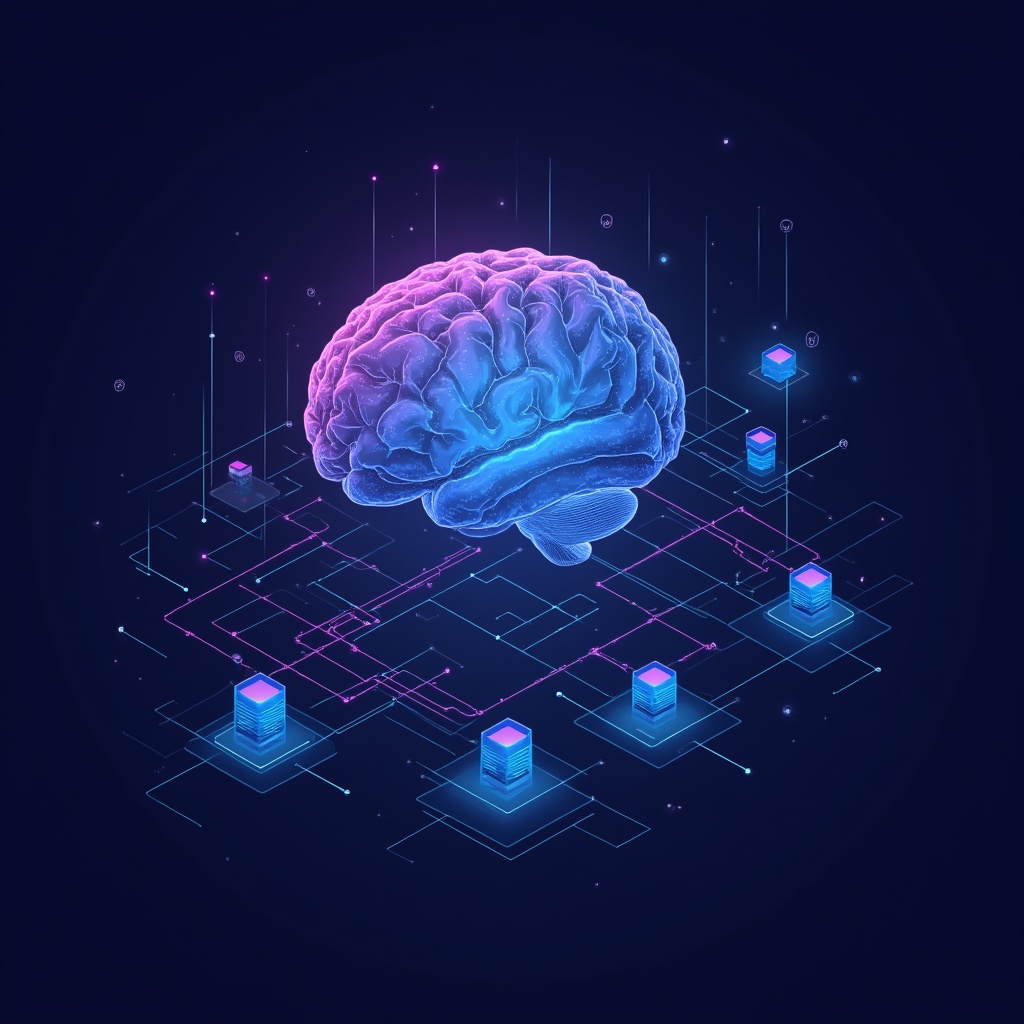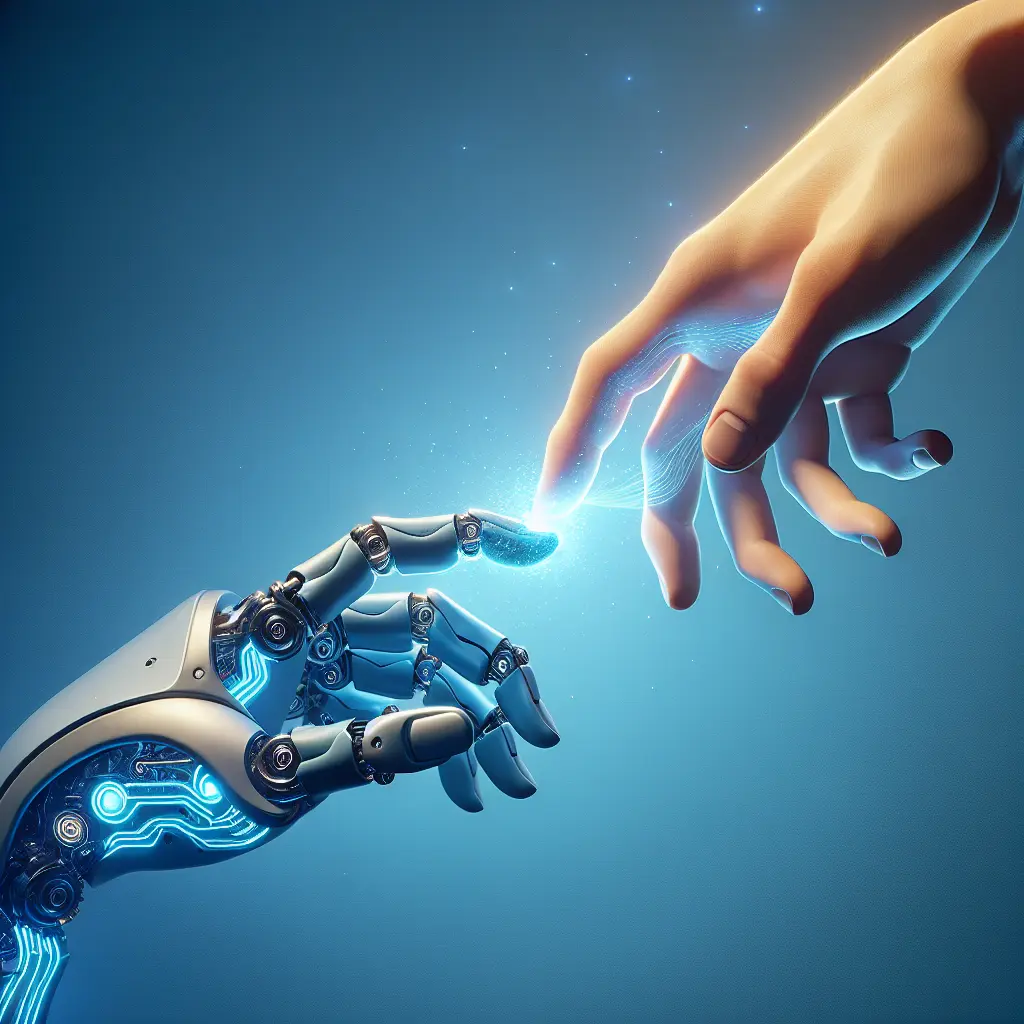AI predictions have been hilariously wrong since the 1950s. From claims that AI would master language by 1967 to beat chess grandmasters by 1968, experts regularly overestimated AI capabilities while underestimating human complexity. This funny timeline shows how even brilliant minds can’t predict technological progress—especially when it comes to artificial intelligence.
When Experts Get It Spectacularly Wrong
Have you ever been so confident about something that you’d stake your professional reputation on it? Well, that’s exactly what some of the brightest minds in computer science have been doing for decades with their AI predictions. And boy, did teh universe have a good laugh at their expense.

I’m not talking about small misses here. I’m talking about predictions so wildly off-base that they’ve become legendary in tech circles—like that time in 1956 when researchers casually announced they’d solve the entire problem of artificial intelligence during a two-month summer workshop. Spoiler alert: they didn’t.
Let’s take a delightful journey through the graveyard of AI predictions that aged about as well as milk left on a dashboard in July.
The 1950s-60s: The “We’ll Have This Solved by Lunch” Era
The 1950s and 60s were a time of unbridled optimism in AI research. These pioneers weren’t just hopeful—they were practically planning their “Mission Accomplished” parties.
- 1956: At the Dartmouth Conference (the birthplace of AI as a field), organizers proposed that “significant advances” could be made if a group of 10 scientists worked together for just two months. They essentially thought they’d crack human-level intelligence over a summer break.
- 1957: Herbert Simon predicted that within 10 years, a computer would be chess champion and prove a mathematical theorem. Half points for eventually getting chess right… just 30 years late.
- 1967: Marvin Minsky, a giant in the field, confidently stated, “Within a generation, the problem of creating ‘artificial intelligence’ will be substantially solved.” Narrator: It wasn’t.
What makes these predictions so funny in retrospect is the sheer confidence. It’s like watching someone declare they’ll climb Everest in flip-flops. The early AI researchers had no idea what they were up against—namely, that human intelligence is kinda complex. Who knew?
The 1970s-80s: The “AI Winter Is Coming” Years
After all those bold predictions face-planted into reality, funding dried up faster than you could say “neural network.” Welcome to the first AI Winter!
During this period, AI research slowed dramatically as governments and corporations pulled funding. Turns out investors don’t love pouring money into projects that promised human-level intelligence but delivered programs that could barely understand “yes” and “no.”
Sir James Lighthill’s infamous 1973 report to the British government concluded that “in no part of the field have discoveries made so far produced the major impact that was then promised.” Ouch. That’s academic-speak for “y’all were talking nonsense.”
Expert Systems: The Corporate AI Fever Dream
The 1980s saw a brief resurgence with “expert systems”—programs that attempted to encode human expertise in specific domains. Companies poured millions into these systems, convinced they would revolutionize everything from medicine to manufacturing.
Narrator voice: They did not.
While some expert systems proved marginally useful, they were brittle, expensive to maintain, and couldn’t adapt to new information. By the late 80s, most companies had abandoned their expert system projects, leading to the second AI winter.
The 1990s-2000s: Chess Champions and Vacuum Cleaners
The 90s finally brought some legitimate AI wins, though not quite the artificial general intelligence everyone had been promising for decades.
- 1997: IBM’s Deep Blue defeated chess champion Garry Kasparov. This was genuinely impressive, but also a reminder that playing chess is not the same as general intelligence.
- 2002: The first Roomba was released. Yes, the most practical AI application for many years was… a vacuum cleaner. Not exactly the robot butlers we were promised.
During this period, predictions became slightly more cautious, but experts still had a tendency to underestimate the challenges. Ray Kurzweil began making his famous predictions about the singularity, which we’re still waiting to see materialize.

The 2010s-Present: From Watson to ChatGPT
The current era of AI has seen both incredible achievements and some spectacular face-plants:
- 2011: IBM’s Watson won Jeopardy! and was gonna revolutionize healthcare. IBM executives predicted Watson would be a $10 billion business within a few years. Instead, Watson Health was sold off for scraps in 2022.
- 2016: Self-driving cars were predicted to be “everywhere” by 2020. As I write this in my human-driven car, I’m pretty sure we’re not there yet.
- 2022-2023: Large language models like ChatGPT have sparked both legitimate amazement and some wildly overblown predictions about AI replacing humans in creative fields “within months.”
Why Are We So Bad at Predicting AI Progress?
There’s something about artificial intelligence that makes smart people lose their minds a little. But why are these predictions so consistently wrong?
- Underestimating complexity: The human brain has roughly 86 billion neurons with trillions of connections. Creating intelligence isn’t exactly a weekend project.
- The “easy things are hard” paradox: Tasks that are easy for humans (like recognizing objects or understanding context in language) turned out to be incredibly difficult for computers.
- Technological optimism: There’s a natural human tendency to overestimate short-term progress while underestimating long-term changes.
- Career incentives: Bold predictions get attention, funding, and headlines. “We might make incremental progress over several decades” doesn’t make for exciting press releases.
Prompt You Can Use Today
Want to have some fun with AI predictions? Try this prompt with ChatGPT or Claude:
Write a series of increasingly absurd predictions about AI capabilities from 2025 to 2100, in the style of overly optimistic computer scientists. Start reasonable and get more ridiculous with each decade. End with the most outlandish prediction possible.What’s Next for AI Predictions?
If history has taught us anything, it’s that we should take AI timelines with enough salt to give your cardiologist nightmares. The field will certainly continue to advance—sometimes in surprising bursts of progress, sometimes through agonizing plateaus.
The next time you hear someone confidently proclaim that AI will achieve human-level intelligence by [insert date], remember this funny history of incredibly smart people being incredibly wrong.
One prediction I feel comfortable making: in twenty years, we’ll be laughing at the AI predictions being made today. Some things never change.
Frequently Asked Questions
Q: When did AI research officially begin?
AI research formally began at the Dartmouth Workshop in 1956, where the term “artificial intelligence” was coined. The proposal for this workshop included the hilariously optimistic claim that significant advances could be made by ten people working together for just two months. Talk about setting yourself up for disappointment!
Q: What was the biggest AI prediction failure?
Many would point to Marvin Minsky’s 1967 prediction that the problem of creating artificial intelligence would be “substantially solved” within a generation. More than 50 years later, we’re still working on it. Though IBM’s Watson in healthcare might be the biggest commercial prediction failure—after massive hype, IBM sold Watson Health assets for about a quarter of what they invested.
Q: Are today’s AI predictions more accurate?
Today’s predictions tend to be more nuanced, but the pattern of overestimating short-term progress continues. We’ve gotten better at specific applications of AI but still regularly overestimate how quickly we’ll achieve artificial general intelligence. The lesson? Be skeptical of anyone giving specific timelines for major AI breakthroughs—especially if they’re trying to raise venture capital.
Conclusion
The history of AI predictions is basically a master class in human overconfidence. From the 1950s to today, brilliant people have consistently underestimated the difficulty of creating artificial intelligence while overestimating how quickly we’d get there.
But there’s something endearing about this pattern of prediction and failure. It reflects our persistent optimism about technology and our drive to push boundaries—even when those boundaries push back harder than expected.
Next time you see a headline proclaiming that AI will achieve some amazing feat “within five years,” maybe give it fifteen… or fifty. In the meantime, I’ll be waiting for my robot butler. Any day now, right?
Enjoyed this trip through AI’s comically wrong predictions? Follow us for more tech reality checks that’ll make you feel better about your own failed predictions—like when you said you’d definitely start going to the gym this year.



